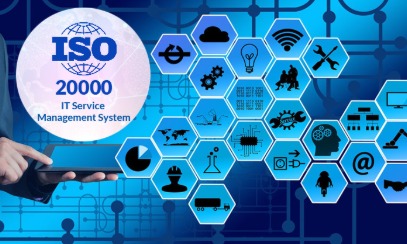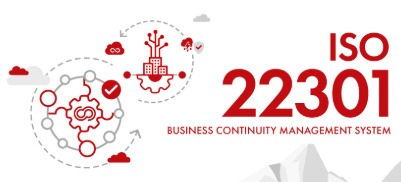ISO 20000: Enhancing IT Service Management for Modern Organizations
Introduction
In today’s digital age, where organizations depend heavily on IT services to deliver value to customers, effective service management is crucial. Businesses are constantly striving to improve efficiency, minimize downtime, and enhance customer satisfaction. This is where ISO/IEC 20000, the international standard for IT Service Management Systems (ITSMS), plays a vital role.
ISO 20000 provides a structured framework for organizations to establish, implement, maintain, and continuously improve IT services. It ensures that IT service providers—whether internal departments or external vendors—deliver services that meet business and customer requirements consistently and effectively.
What is ISO 20000?
ISO/IEC 20000-1:2018 is the globally recognized standard for IT Service Management. Developed by the International Organization for Standardization (ISO) and the International Electrotechnical Commission (IEC), it defines the requirements for an organization to establish an IT Service Management System (ITSMS).
The standard focuses on integrating IT services with business objectives, ensuring reliability, and improving the quality of service delivery. It aligns with best practices found in frameworks such as ITIL (Information Technology Infrastructure Library), but ISO 20000 provides formal certification that demonstrates compliance with international standards.
Purpose and Importance of ISO 20000
The main purpose of ISO 20000 is to ensure that IT services are designed, delivered, and managed in a systematic and consistent way. It helps organizations move away from reactive service management toward a proactive, process-driven approach.
ISO 20000 certification provides confidence to customers, partners, and stakeholders that the organization’s IT services are reliable, efficient, and continuously improving. It also enhances credibility in the marketplace, especially for IT service providers competing in global environments.
Key Components of ISO 20000
ISO 20000 consists of several critical components that define the foundation of an effective IT Service Management System:
-
Service Delivery Processes:
Focuses on managing service levels, capacity, continuity, and availability.
-
Relationship Processes:
Addresses how organizations manage supplier and customer relationships effectively.
-
Resolution Processes:
Covers incident and problem management to ensure timely service restoration and issue resolution.
-
Control Processes:
Includes configuration management, change management, and release management to maintain IT infrastructure integrity.
-
Design and Transition of New Services:
Ensures that new or changed services are effectively designed, tested, and implemented without disrupting existing operations.
-
Continual Improvement:
Promotes regular evaluation of services and processes to drive innovation and service enhancement.
Benefits of ISO 20000 Certification
For Organizations
-
Improved Service Quality:
Establishes consistent and reliable IT services that meet defined business objectives.
-
Enhanced Customer Satisfaction:
Ensures faster response times, reduced downtime, and improved communication with customers.
-
Operational Efficiency:
Streamlines processes and reduces duplication of effort through standardized practices.
-
Risk Management:
Identifies and mitigates risks related to IT operations, security, and continuity.
-
Cost Optimization:
Improves resource utilization and minimizes unnecessary expenses by optimizing IT operations.
-
Global Recognition:
Demonstrates compliance with international standards, enhancing reputation and credibility.
-
Regulatory Compliance:
Helps organizations align with legal, regulatory, and contractual IT service obligations.
For Customers and Stakeholders
-
Greater confidence in the organization’s ability to deliver consistent, reliable IT services.
-
Transparency in service level agreements (SLAs) and performance reporting.
-
Assurance of ongoing improvement and responsiveness to business needs.
Who Can Implement ISO 20000?
ISO 20000 applies to all types of organizations—large or small, public or private—that rely on IT services. This includes:
-
IT service providers and managed service companies
-
Software development firms
-
Financial institutions
-
Telecommunications companies
-
Educational and healthcare institutions
-
Government departments
-
In-house IT departments of large enterprises
Any organization seeking to improve the quality, consistency, and reliability of its IT services can benefit from implementing ISO 20000.
Structure of ISO/IEC 20000-1:2018
The 2018 version of the standard follows the Annex SL structure, aligning it with other ISO management system standards such as ISO 9001 (Quality Management) and ISO 27001 (Information Security Management). This makes integration easier for organizations that already have multiple ISO systems in place.
Key clauses include:
-
Context of the Organization
-
Leadership
-
Planning
-
Support
-
Operation
-
Performance Evaluation
-
Improvement
This structure supports a holistic and consistent approach to management across different functions.
Steps to Achieve ISO 20000 Certification
-
Understand the Standard:
Study ISO 20000 requirements to gain a clear understanding of its structure and applicability.
-
Gap Analysis:
Assess current IT service management processes against ISO 20000 requirements to identify areas for improvement.
-
Planning and Documentation:
Develop necessary policies, procedures, and process documents for the ITSMS.
-
Implementation:
Deploy the system across all service management processes, ensuring that roles, responsibilities, and workflows are well defined.
-
Internal Audit:
Conduct internal audits to check the effectiveness of the implemented system.
-
Management Review:
Top management must review the ITSMS performance and ensure alignment with strategic objectives.
-
Certification Audit:
Engage an accredited Certification Body to conduct the final audit. Once compliance is verified, ISO 20000 certification is awarded.
-
Continuous Improvement:
Maintain and improve the ITSMS through regular monitoring, feedback, and updates.
Integration with Other Management Systems
ISO 20000 can easily be integrated with other ISO standards, such as:
-
ISO 9001 (Quality Management): Enhances process consistency and customer satisfaction.
-
ISO 27001 (Information Security): Ensures IT services are secure and data is protected.
-
ISO 22301 (Business Continuity): Provides resilience in case of IT disruptions.
This integration creates a unified management approach that enhances efficiency, reduces duplication, and strengthens governance.
ISO 20000 vs. ITIL
Although ITIL (Information Technology Infrastructure Library) provides detailed best practices for IT Service Management, it is not a certifiable standard. ISO 20000, on the other hand, offers formal certification recognized globally.
In essence:
Organizations can use ITIL as a framework to help meet ISO 20000 requirements effectively.
Challenges in Implementing ISO 20000
While ISO 20000 delivers immense value, organizations may face challenges such as:
-
Lack of awareness or training among staff.
-
Complexity in aligning existing processes with ISO requirements.
-
Initial investment in tools, resources, and documentation.
-
Resistance to change in organizational culture.
However, with proper planning, leadership commitment, and expert guidance from a certification body, these challenges can be successfully overcome.
Why ISO 20000 Certification Matters Today
In an era where technology drives business transformation, downtime, security breaches, and poor service quality can severely impact an organization’s reputation and revenue. ISO 20000 ensures that IT services are managed with discipline, transparency, and accountability.
Moreover, clients and government agencies increasingly prefer or mandate ISO 20000 certification for service providers, making it a key differentiator in the competitive IT services market.
Conclusion
ISO/IEC 20000 certification is more than just a compliance achievement—it is a strategic investment in operational excellence. It empowers organizations to deliver high-quality, reliable, and customer-centric IT services while optimizing costs and minimizing risks.
By implementing ISO 20000, organizations demonstrate a commitment to continuous improvement, customer satisfaction, and alignment of IT with business goals. Whether you are an IT service provider, a managed service company, or a corporate IT department, achieving ISO 20000 certification will elevate your credibility, strengthen customer trust, and drive long-term business success.







